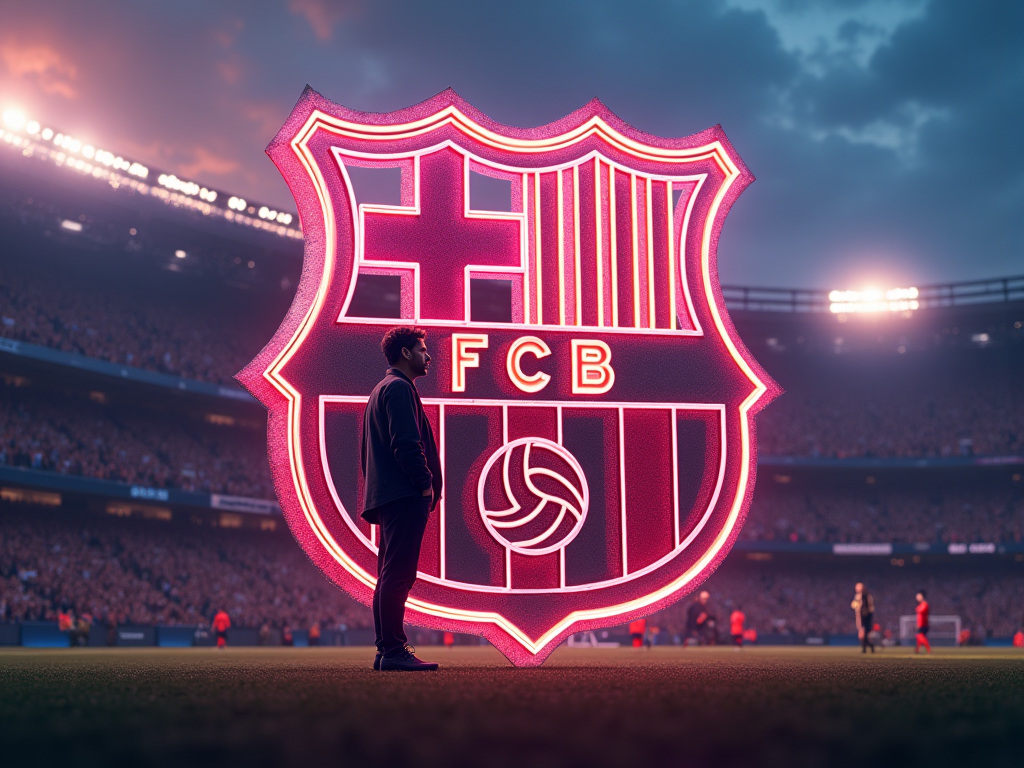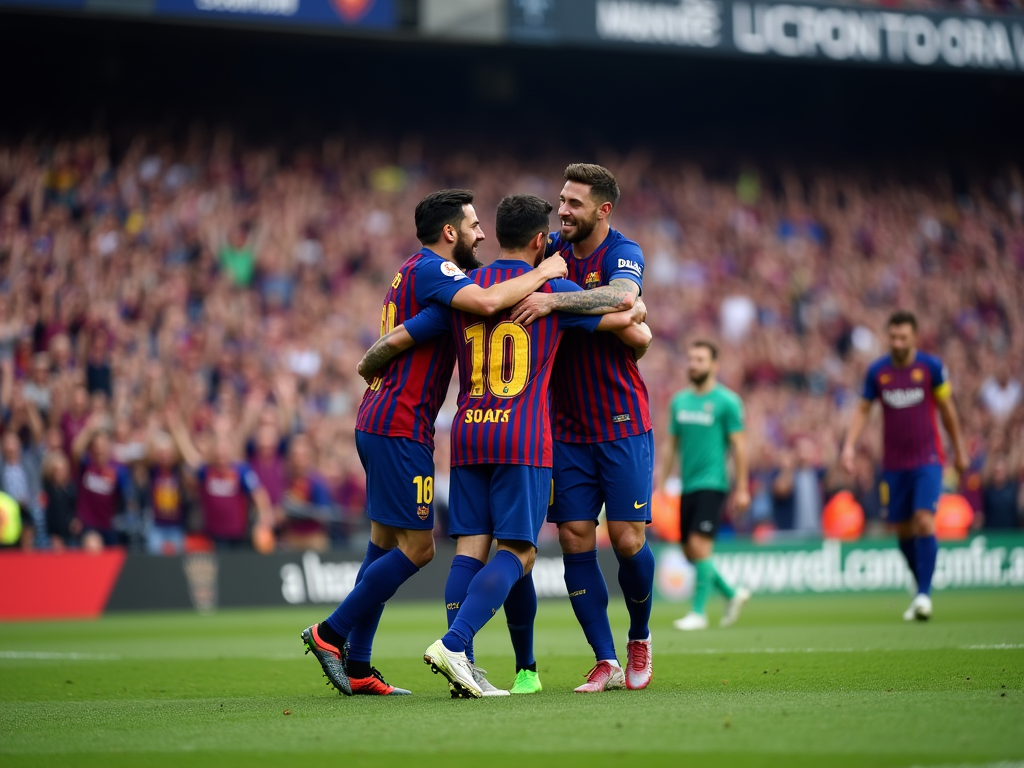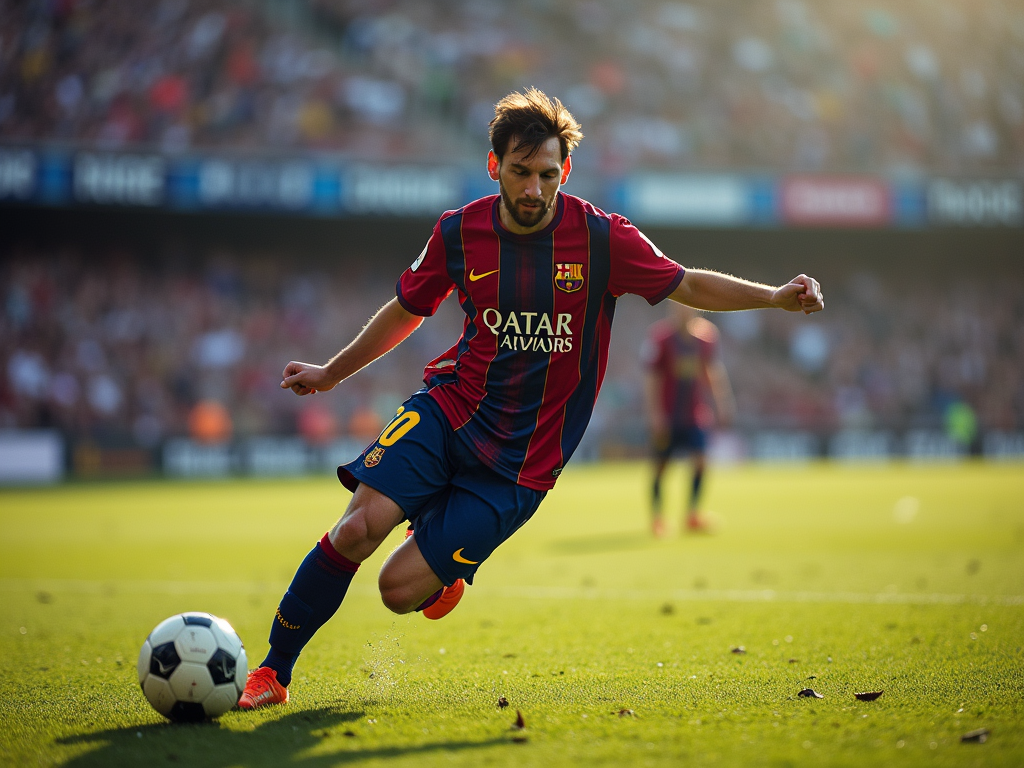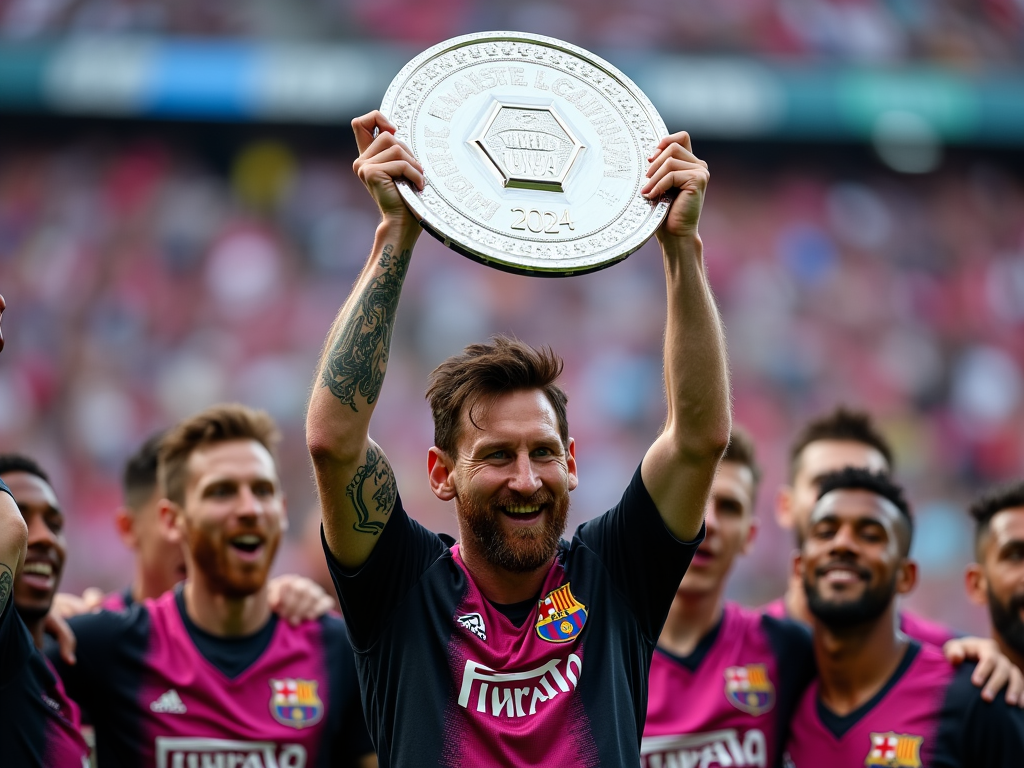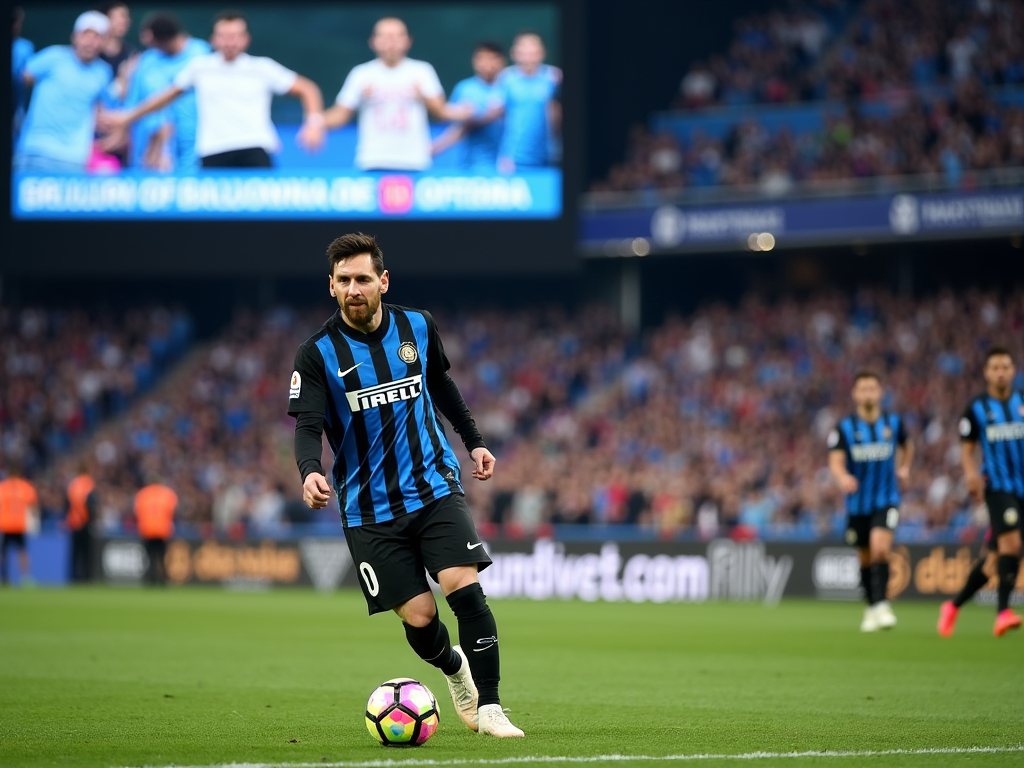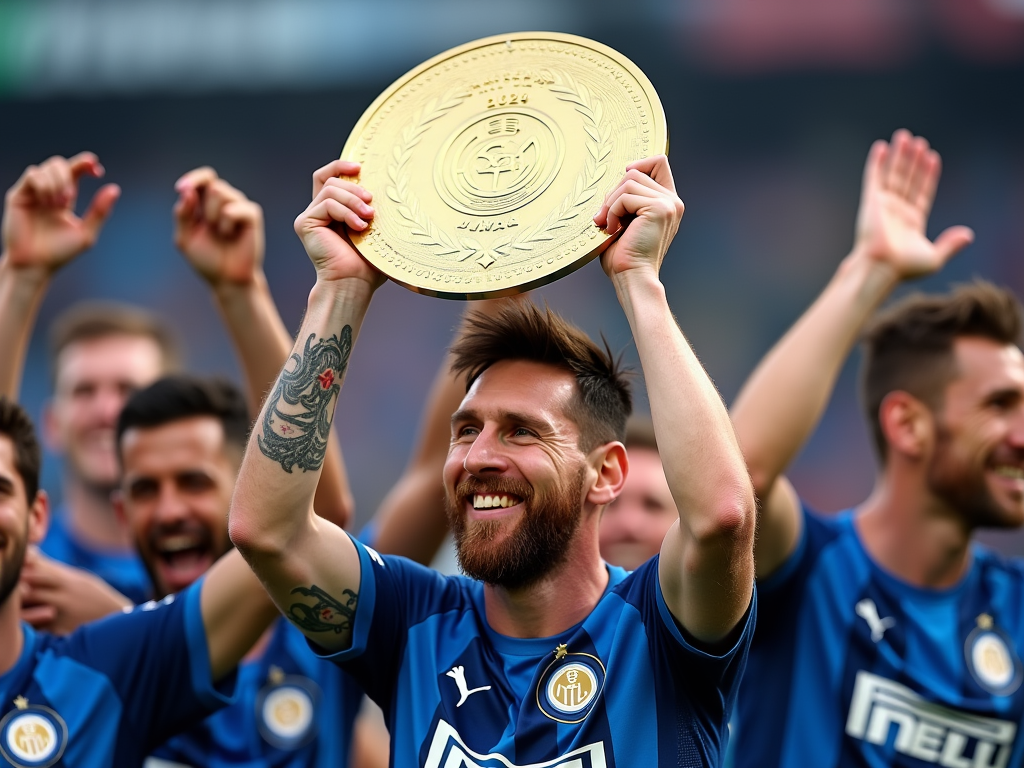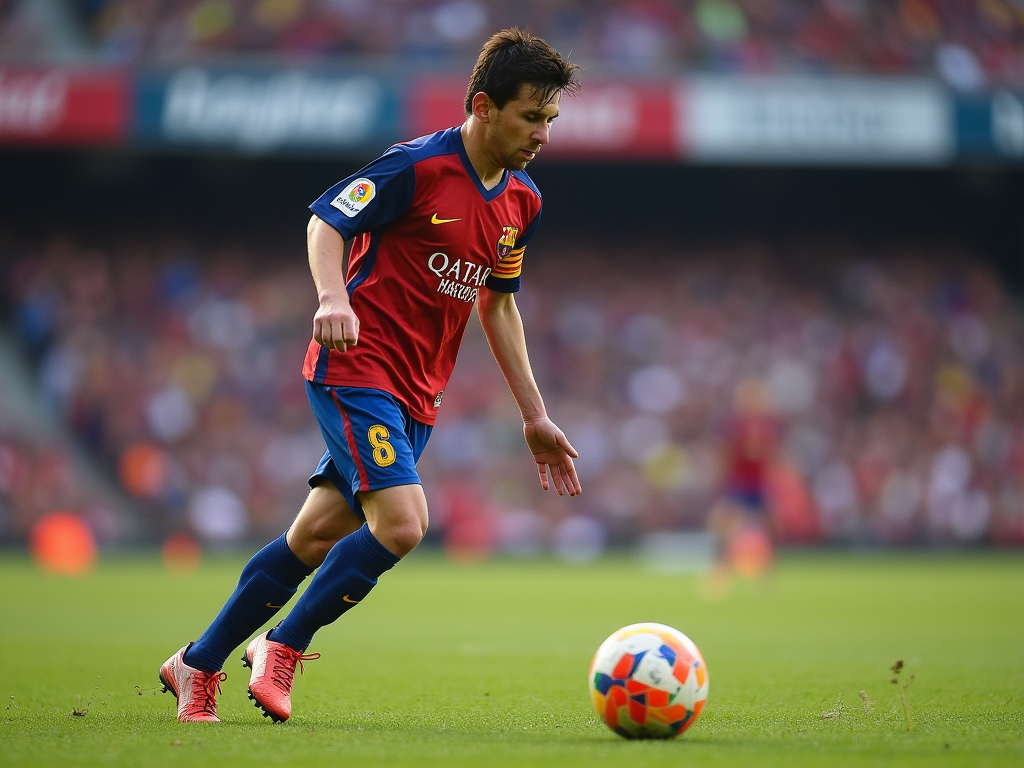Key Points
• FC Barcelona has achieved remarkable financial stability, reporting a €12 million profit for the 2023-24 season and implementing significant cost-reduction strategies. The club’s strategic financial management includes reducing payroll by €170 million and increasing sponsorship revenues to over €250 million.
• The team has demonstrated exceptional on-field performance under manager Hansi Flick, including a historic 4-0 victory against Real Madrid and maintaining an impressive 43-game unbeaten streak in La Liga. Key players like Robert Lewandowski and Lamine Yamal have been instrumental in the team’s early season success.
Financial Stability
FC Barcelona is currently undergoing a significant transformation characterized by unparalleled financial discipline and strategic planning. At the club’s Ordinary General Assembly on October 19, 2024, the financial results presented revealed a notable economic rebound. Achieving a positive ordinary profit of €12 million represents a pivotal moment for the club, reflecting the success of innovative revenue generation tactics and detailed expense management strategies. This fiscal prudence has been pivotal in steering the club towards financial stability and ensuring sustainable growth in the competitive world of football.
The approved 2024-25 budget of €893 million in operating income demonstrates the club’s commitment to financial prudence. Record-breaking sponsorship revenues of €210 million, a 72% increase in merchandising sales, and strategic player transfers totaling over €80 million have been crucial to this financial renaissance.
On-Field Performance
Under the expert guidance of manager Hansi Flick, FC Barcelona has demonstrated impressive footballing prowess. The season began with strong performances, notably a hard-fought 2-1 victory against Valencia and a commanding 7-0 win over Real Valladolid. Key contributors to these early successes have been veteran striker Robert Lewandowski and the emerging young talent, Lamine Yamal, both of whom have played pivotal roles in shaping the team’s commendable form. One of the most unforgettable highlights of the season was the historic 4-0 win against Real Madrid in the season’s first El Clásico. This significant victory was not only thrilling for its display of mastery and coordination but also crucial as it halted Real Madrid’s 42-game unbeaten streak in La Liga. Simultaneously, it propelled Barcelona to extend their own impressive league unbeaten record to 43 matches. This achievement underscores the team’s resilience, strategic depth, and tactical sophistication, marking them as a formidable force in competitive football.
Strategic Vision
Barcelona’s strategic approach extends beyond immediate performance. The club maintains a conservative investment policy, focusing on a wage bill of approximately €500 million, and strategically prioritizing profitable player transfers that align with its long-term objectives. This measured approach has also been evident in their adaptation to the evolving Champions League format, which showcases their strategic foresight and strong financial acumen. Furthermore, the team will continue playing at the Estadi Olímpic Lluís Companys until December 15, 2024. This move is due to the ongoing renovations at the iconic Camp Nou, demonstrating the club’s ability to adapt to temporary changes while still focusing on long-term infrastructure goals. Such adaptability underlines Barcelona’s commitment to sustain both competitive and corporate excellence.
Conclusion
As FC Barcelona enters the 2024-25 season, it showcases financial recovery, consistent sporting success, and strategic growth despite a €91 million loss in the previous season, with forecasts indicating a €5 million profit. This demonstrates careful fiscal management, including resolving issues linked to Barça Vision. On the field, the club remains strong, securing the position of La Liga runners-up and excelling in key tournaments, influenced by a strategic coaching change from Xavi to Hansi Flick. This period also saw Barcelona Femeni capturing their third UEFA Women’s Champions League title, underlining the club’s commitment to excellence. Strategically, the return to the partially renovated Spotify Camp Nou enhances fan experience despite a reduced capacity. Economically, the focus has been on increasing sponsorship revenues to a record €210 million and boosting merchandising sales by 72% to nearly €110 million. Furthermore, the club has adeptly managed player transfers and reduced the wage bill from €670 million to just over €500 million, aligning with UEFA’s financial fair play guidelines. Asset sales exceeding €960 million over two seasons have been crucial for managing financial obligations, alongside a comprehensive debt restructuring that includes a notable loan from Goldman Sachs. At the juncture of financial prudence and athletic ambition, FC Barcelona is not only experiencing a financial turnaround but also revitalizing its identity and strategy in modern football, setting a precedent for resilience and strategic insight and promising an exciting future for fans and sports analysts worldwide.
